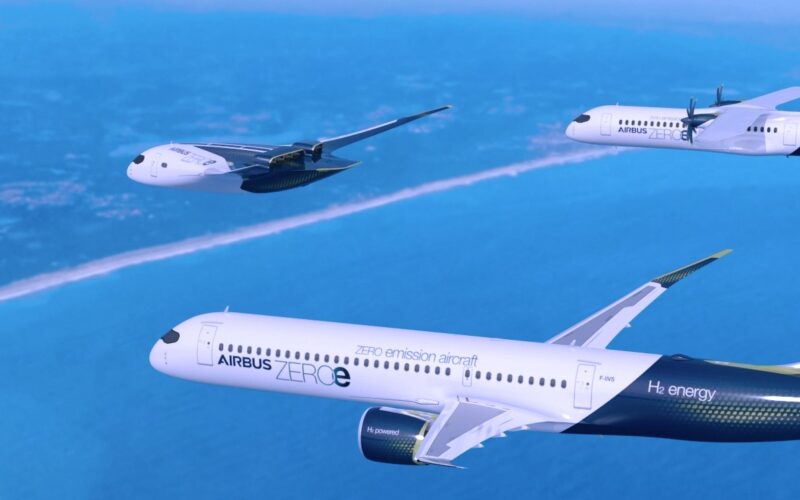Airbus has partnered with Nidec Leroy-Somer to develop hydrogen engine motors for its upcoming hydrogen-powered engine.
The two companies will join forces to develop an electric motor for a hydrogen-powered fuel cell engine with Airbus aiming to bring a flight-ready zero-emission aircraft to the market by 2035.
French company Nidec Leroy-Somer, owned by the Japanese conglomerate Nidec, will build prototype motors that will be tested on the ground and, following qualification and validation, will be tested in flight conditions.
“We are pleased to have been selected by Airbus to provide our expertise in high efficiency electric motors and contribute, through our innovative R&D teams and solutions, to this ambitious eco-friendly commercial aviation project,” said Jean-Michel Condamin, the President of the Commercial & Industrial Motors Division at Nidec Leroy-Somer.
“This important milestone for more sustainable mobility, presents several challenges that we are committed to overcome, to serve the global community,” Condamin added.
According to the company’s press release, the project’s management, design, engineering, and prototype building will be done from its headquarters in Angouleme, France. Airbus’ headquarters in Toulouse are some 360 kilometers away from Nidec Leroy-Somer’s main offices.
“Our world-class R&D capabilities will bring to Airbus sustainable and powerful smart technologies with best-in-class energy efficiency for the near future of aviation,” added Eric Coupart, the Chief Technology Officer (CTO) of the company’s Commercial & Industrial Motors Division.
Airbus launched the ZEROe demonstrator in February 2022, with the European planemaker stating that it would use an Airbus A380 as a testbed for hydrogen propulsion. A few years prior, in September 2020, Airbus unveiled three ZEROe concept aircraft: a turbofan-based design, a turboprop, and a blended-wing body aircraft, with all three powered by hydrogen.
“This is a historic moment for the commercial aviation sector as a whole and we intend to play a leading role in the most important transition this industry has ever seen. The concepts we unveil today offer the world a glimpse of our ambition to drive a bold vision for the future of zero-emission flight,” Airbus CEO Guillaume Faury said at the time.

